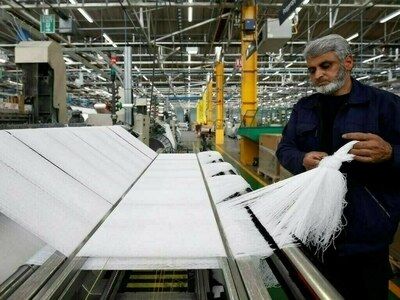Federal Ministers Vow to Address Exporters’ Concerns
LAHORE: Federal Minister for Defence Khawaja Muhammad Asif, along with Federal Minister for Planning, Development, and Special Initiatives Prof Ahsan Iqbal, have committed to escalating the concerns of exporters to the highest echelons of the government.
During an Exporters’ Convention organized by the Pakistan Readymade Garments Manufacturers & Exporters Association (Prgmea), both ministers assured the industry representatives of their steadfast assistance.
The gathering saw attendance from delegates representing PHMA, PSGMEA, PGMEA, SIMAP, PLGMEA, and the Sialkot Chamber of Commerce and Industry (SCCI).
Prof Ahsan Iqbal pointed out that Pakistan’s export figures, currently hovering around $32 billion, are trailing behind those of regional players like Bangladesh, India, and Vietnam.
“A cohesive, export-oriented growth strategy is essential. Cities such as Sialkot, known for their entrepreneurial zeal and globally recognized products, must spearhead this effort,” he stated.
He underscored that economic revitalization hinges on fostering a steady, business-conducive atmosphere and lowering operational costs to regain Pakistan’s competitive advantage.
Khawaja Muhammad Asif reiterated that the issues faced by Sialkot’s exporters would receive top priority. He highlighted that sudden policy alterations and increasing tax burdens are negatively impacting productivity.
“Sialkot’s SMEs constitute the foundation of Pakistan’s export economy. We will not permit them to falter under bureaucratic strain,” he affirmed. He also guaranteed that refund requests and other tax-related matters would be resolved promptly to cultivate a stable and supportive environment for exporters.
Ijaz A Khokhar, former central chairman of Prgmea, voiced substantial apprehension regarding the recent modifications to the Export Facilitation Scheme (EFS), especially concerning temporary imports intended for re-export.
He cautioned that shortened utilization periods and new bank guarantee prerequisites will disproportionately affect SMEs, which are already operating with minimal margins. “Such policy changes not only endanger our competitiveness but also the very essence of Pakistan’s export mechanism,” he emphasized.
Sohail A Sheikh, a previous Prgmea chairman, critiqued the abrupt transition from the Final Tax Regime (FTR) to the Normal Tax Regime (NTR). He articulated that the revised model introduces unpredictability into tax obligations and amplifies compliance responsibilities. “This shift was executed without consulting stakeholders. It has undermined industry confidence and disrupted planning and cash flow predictability,” he remarked.



Comments (0)
No comments yet. Be the first to comment!
Leave a Comment